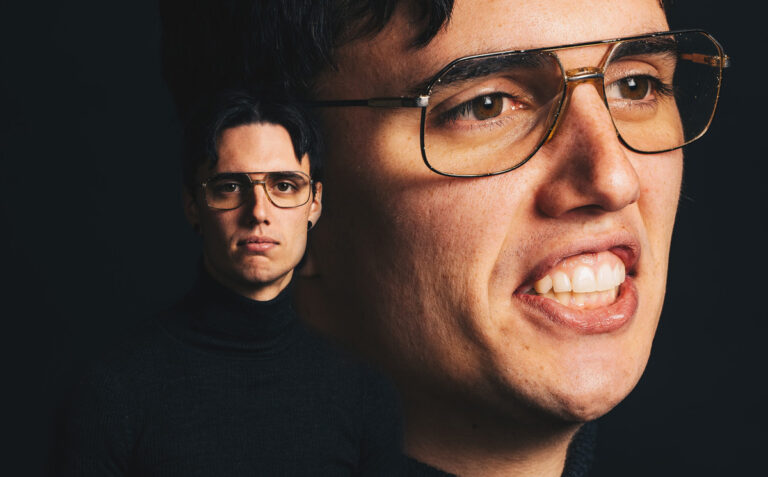Can’t stand to hear the sound of your voice on recordings? There’s a scientific explanation behind it
We’ve all been there—someone is playing a video where they were lucky enough to get a special appearance from you. Of course, you start by checking yourself out. So far, so good. But then, something appalling occurs. On the recording, you witness your past self open their mouth and start babbling. You can’t help yourself, you become possessed by the embarrassment demon, turn to the person playing the video and ask them to pause it immediately. ‘Is that really what I sound like?’ you ask them. Whether they answer affirmatively or not, there aren’t two ways to go about it, so we’ll be honest: yes, you do sound like that.
As you’ve probably guessed already, in this article, we’ll be answering the million-dollar question, why do we hate the sound of our own voices? But before we tackle this one, we first need to look at why we’re not capable of hearing ourselves correctly.
Why don’t we hear our own voices the same as others do?
When talking out loud, people tend to hear the sound they generate in a deeper voice tone than what everyone else hears. To others, your voice generally sounds higher pitched than what you’d expect, which is partly why being presented with such a twisted reality is hard to swallow.
The sound of your voice reaches your inner ear in two different ways. The vocal folds in your throat vibrate creating sound waves that travel through the air. But those sound vibrations also conduct through your body, particularly through your skull and bones. You might be wondering what that indicates exactly. In a video titled Why Do I Hate The Sound Of My Own Voice?, the YouTube channel BrainStuff – HowStuffWorks explains it rather simply, “Our skulls lower the frequency of these ladder vibrations as they bounce around our throat, mouth and neck before reaching the ear’s cochlea through the fleshy tissue in our heads.”
As a result, the surrounding bones spread out the vibrations, lower their pitch and enhance the lower frequency vibrations. That’s why your voice sounds fuller and deeper than it actually is. On the other hand, when we hear our voice played back on a recording, we don’t get it filtered through flesh and bone. Instead, what we’re hearing then is only the air conducted sound of our voice as waves of pressure—what’s referred to as ‘air conduction’.
“In both cases, the cochlea converts these vibrations into impulses that are sent to the brain but with the elimination of the bone-conducted sound, we end up hearing our own voice the way everybody else hears it,” the video further explains.
Why do we hate the sound of our own voices?
In an article for Big Think, laryngologist—a surgeon who treats disorders of voice, breathing and swallowing—Neel Bhatt mentioned why hearing a recording of your voice can be so disconcerting, “It really is a new voice—one that exposes a difference between your self-perception and reality. Because your voice is unique and an important component of self-identity, this mismatch can be jarring. Suddenly, you realize other people have been hearing something else all along.”
“Even though we may actually sound more like our recorded voice to others, I think the reason so many of us squirm upon hearing it is not that the recorded voice is necessarily worse than our perceived voice. Instead, we’re simply more used to hearing ourselves sound a certain way,” Bhatt continued.
Scrolling through the comments under BrainStuff – HowStuffWorks’s video, it’s clear to see that each of us has had to experience that realisation. YouTube user WILD THINGS shared, “When I was a teenager I worked at a supermarket and had to use the store’s intercom on a regular basis. There was no delay, so I was hearing my voice internally and externally at the same time. I always found it strange, almost like two different people talking. The voice I was hearing over the speakers was noticeably different. Always gave me a weird sensation and I avoided using the intercom as much as possible.”
Another, Punky Nene, wrote, “I want to hear how Morgan Freeman hears himself.” A fair demand if you ask us. The moral of the story is that we all—besides Freeman—feel self-conscious about the way we sound. In fact, it’s been proven scientifically. In a 2005 study, researchers had patients with voice problems rate their own voices when presented with recordings of them. They also had clinicians rate the voices. They found that patients, across the board, tended to more negatively rate the quality of their recorded voice compared with the objective assessments of clinicians.
So, now that you know the answers to the two main ‘why’s of this article, you’ve got one last thing to cross off your list—it’s time for you to tackle your inner critic for good and start loving what you truly sound like. Good luck.






